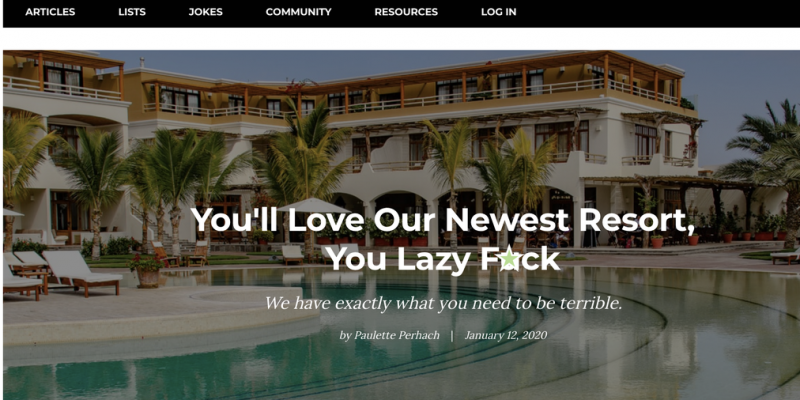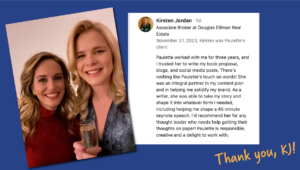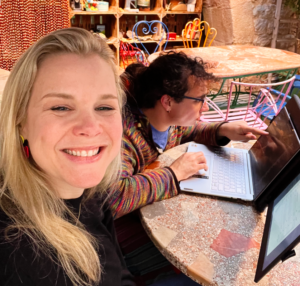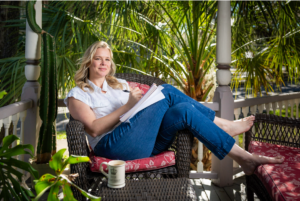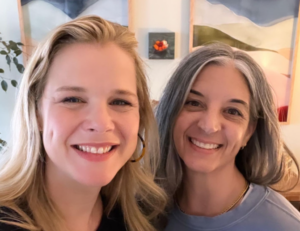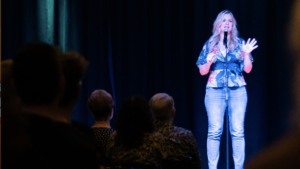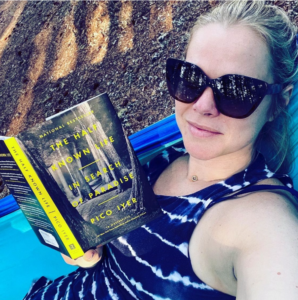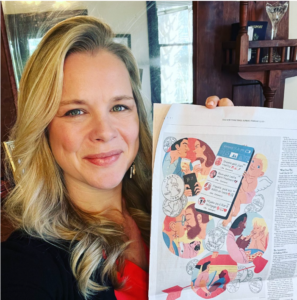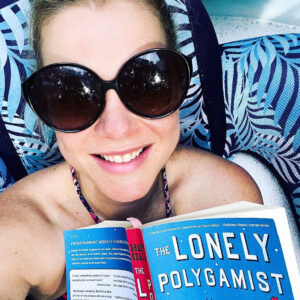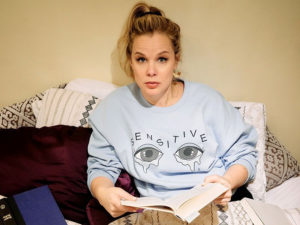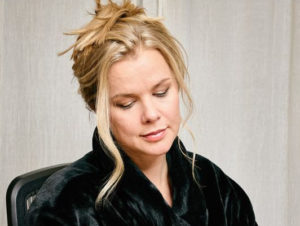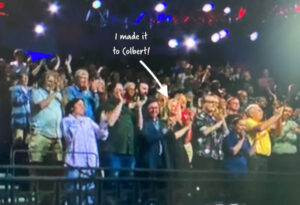I’ve been hard at work on parody songs for A Very Important Karaoke Party, turning “Part of Your World” into a song about applying to an MFA program, and “This is How We Do It” into “This B*tch Got a Book Deal.”
Writing parody and satire is so fun, so refreshing, I think more writers would do it if they felt permission.
Psst: This site uses affiliate links.
Parody is “a composition that imitates the style of another composition, normally for comic effect and often by applying that style to an outlandish or inappropriate subject.”
Whereas satire “is intended to do more than just entertain; it tries to improve humanity and its institutions.”
I guess satire is parody with morals.
Part of the fun is realizing how many styles there are to play with. I recently came across “Our Bed and Breakfast is the Perfect Place for You and Your Spouse to Fight on Vacation,” which uses the same form as my piece, “You’ll Love Our Newest Resort You Lazy F*ck.”
We both play on luxury vacation property descriptions, including that cheesy question and answer format. This is called a schema — basically a unit of knowledge the reader already possesses, which you can evoke and play with.
People know what a luxury brand sounds like: the lush verbs, the near-orgasmic expressions of exclusivity, a world view that centers you and your comfort.
The fun thing about schemas is that you can make people think you’re leading them down one road, then take a hard left.
For example, the first line of my piece: “Nestled in the lush mountains of a stunning landscape, our all-inclusive getaway awaits with a luxurious experience designed just for you, the laziest piece of sh*t on the planet.”
Every piece of satire must have subtext.
This is what it’s saying underneath all the humor. Though these authors and I both use the same container, their subtext is something like, “Couple fights follow you no matter how nice your surroundings.” Mine is something like, “The more we spend, the further we’re allowed to get from the pro-social expectations of shared labor.”
Maybe your earnest essay could be re-incarnated as satire.
It dawned on me a bit ago that almost any serious essay could be written as satire instead.
For example, I could have written a diatribe about how sickening I find some people on design shows, who act like a bathroom is unlivable because it has quartz instead of marble.
Instead, I wrote “Awful HGTV House Hunters or One of the 2.6 Million People Living in Refugee Camps?”
Instead of writing an op-ed about how everyone should have healthcare, I wrote “My Personal Brand is I Don’t Want to Die.”
Instead of saying maybe we shouldn’t have to turn every aspect of our lives into a side hustle to make it, I wrote “Make Extra Cash by Renting Out Your Mouth!”
Satire is powerful.
The thing about satire is that it’s surprising, and surprise garners attention.
If you have some medicine you think the world should swallow, parody is the sugar that helps it go down.
As fellow writers and I sing “Don’t Stop Submittin’” to the tune of “Don’t Stop Believin’” we’ll really be at a bar commiserating about how much of a struggle the writer’s life can be. But we might be laughing too hard to notice.
Headed to AWP or live in the Seattle area? Join us for A Very Important Karaoke Party!


